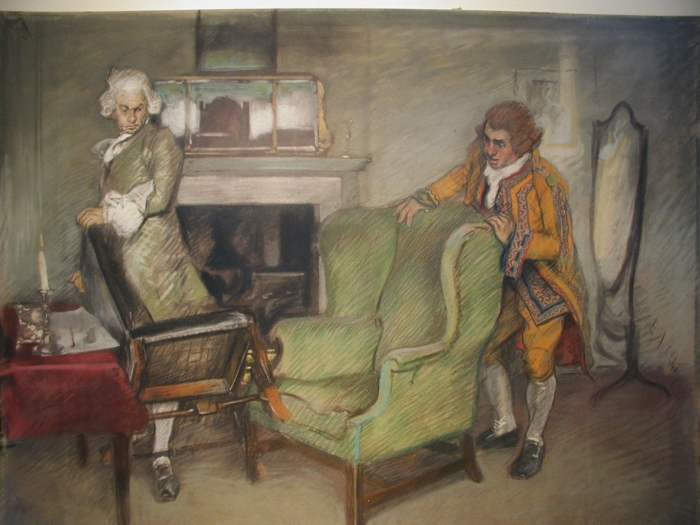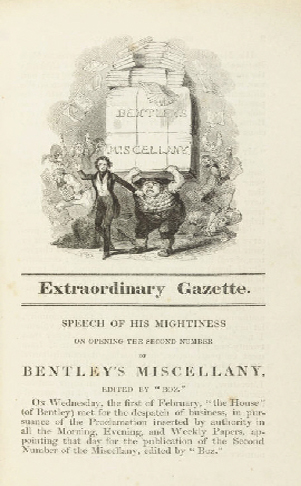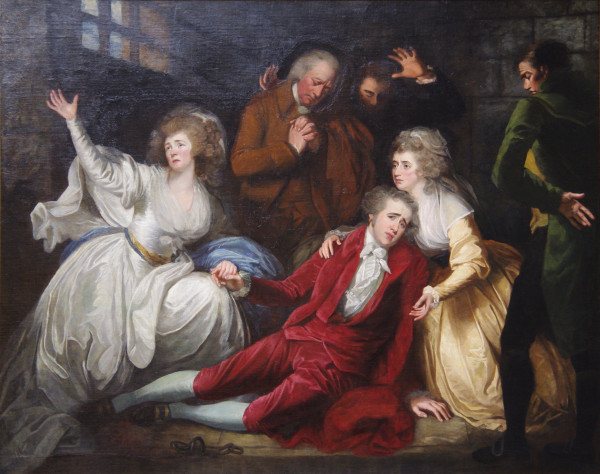|
The Wheel Of Fortune (play)
''The Wheel of Fortune: A Comedy'' is a comedy in five acts written by playwright Richard Cumberland and first presented at the Drury Lane Theatre in London on 28 February 1795, with a prologue and an epilogue. John Philip Kemble was praised for his portrayal of the misanthropic, embittered Roderick Penruddock, who cannot forget but learns to forgive. The famous playwright August von Kotzebue claimed that the misanthropic character was stolen from his ''Menschenhass und Reue''. Elizabeth Inchbald was in some measure of agreement with Kotzebue, but Cumberland objected. Weazel the lawyer was one of Richard Suett's best roles. The play is mentioned in Jane Austen's 1814 novel ''Mansfield Park'': In December 1796 Ann Brunton Merry played the role of Emily Tempest at the Chestnut Street Theatre The Chestnut Street Theatre in Philadelphia, Pennsylvania was the first theater in the United States built by entrepreneurs solely as a venue for paying audiences.The Chestnut Street The ... [...More Info...] [...Related Items...] OR: [Wikipedia] [Google] [Baidu] |
Richard Cumberland (dramatist)
Richard Cumberland (19 February 1731/2 – 7 May 1811) was an English dramatist and civil servant. In 1771 his hit play ''The West Indian'' was first staged. During the American War of Independence he acted as a secret negotiator with Spain in an effort to secure a peace agreement between the two nations. He also edited a short-lived critical journal called ''The London Review'' (1809). His plays are often remembered for their sympathetic depiction of characters generally considered to be on the margins of society. Early life and education Richard Cumberland was born in the master's lodge of Trinity College, Cambridge on 19 February 1731/2. His father was a clergyman, Doctor Denison Cumberland, who became successively Bishop of Clonfert and Bishop of Kilmore, and through him his great-grandfather was Richard Cumberland, the philosopher and bishop of Peterborough. His mother was Johanna Bentley, youngest daughter of Joanna Bernard and the classical scholar Richard Bentley, ... [...More Info...] [...Related Items...] OR: [Wikipedia] [Google] [Baidu] |
The Rivals
''The Rivals'' is a comedy of manners by Richard Brinsley Sheridan in five acts which was first performed at Covent Garden Theatre on 17 January 1775. The story has been updated frequently, including a 1935 musical and a 1958 episode of the TV series '' Maverick'' (see below) starring James Garner and Roger Moore, with attribution. History Production ''The Rivals'' was Sheridan's first play. At the time, he was a young newlywed living in Bath. At Sheridan's insistence, upon marriage his wife Eliza (born Elizabeth Linley) had given up her career as a singer. This was proper for a gentleman's wife, but it was difficult because Eliza would have earned a substantial income as a performer. Instead, the Sheridans lived beyond their means as they entertained the gentry and nobility with Eliza's singing (in private parties) and Richard's wit. Finally, in need of funds, Richard turned to the only craft that could gain him the remuneration he desired in a short time: he began wri ... [...More Info...] [...Related Items...] OR: [Wikipedia] [Google] [Baidu] |
1795 Plays
Events January–June * January – Central England records its coldest ever month, in the CET records dating back to 1659. * January 14 – The University of North Carolina opens to students at Chapel Hill, becoming the first state university in the United States. * January 16 – War of the First Coalition: Flanders campaign: The French occupy Utrecht, Netherlands. * January 18 – Batavian Revolution in Amsterdam: William V, Prince of Orange, Stadtholder of the Dutch Republic (Republic of the Seven United Netherlands), flees the country. * January 19 – The Batavian Republic is proclaimed in Amsterdam, ending the Dutch Republic (Republic of the Seven United Netherlands). * January 20 – French troops enter Amsterdam. * January 23 – Flanders campaign: Capture of the Dutch fleet at Den Helder: The Dutch fleet, frozen in Zuiderzee, is captured by the French 8th Hussars. * February 7 – The Eleventh Amendment to the United States ... [...More Info...] [...Related Items...] OR: [Wikipedia] [Google] [Baidu] |
Plays By Richard Cumberland
Play most commonly refers to: * Play (activity), an activity done for enjoyment * Play (theatre), a work of drama Play may refer also to: Computers and technology * Google Play, a digital content service * Play Framework, a Java framework * Play Mobile, a Polish internet provider * Xperia Play, an Android phone * Rakuten.co.uk (formerly Play.com), an online retailer * Backlash (engineering), or ''play'', non-reversible part of movement * Petroleum play, oil fields with same geological circumstances * Play symbol, in media control devices Film * ''Play'' (2005 film), Chilean film directed by Alicia Scherson * ''Play'', a 2009 short film directed by David Kaplan * ''Play'' (2011 film), a Swedish film directed by Ruben Östlund * ''Rush'' (2012 film), an Indian film earlier titled ''Play'' and also known as ''Raftaar 24 x 7'' * ''The Play'' (film), a 2013 Bengali film Literature and publications * ''Play'' (play), written by Samuel Beckett * ''Play'' (''The New York Ti ... [...More Info...] [...Related Items...] OR: [Wikipedia] [Google] [Baidu] |
Chestnut Street Theatre
The Chestnut Street Theatre in Philadelphia, Pennsylvania was the first theater in the United States built by entrepreneurs solely as a venue for paying audiences.The Chestnut Street Theatre Project The New Theatre (First Chestnut Street Theatre) The Chestnut Street Theatre (originally named the New Theatre) was the brainchild of Thomas Wignell and Alexander Reinagle who in 1791 convinced a group of Philadelphia investors to build a theater suitable for Wignell's company to perform in. Wignell had not yet formed his company when the New Theatre was being set up to be built, but as the New Theater was being built, Wignell was in England recruiting actors to be a part of his company. The New Theater's design, modeled after the Theatre Royal, Bath, was made possible by John Inigo Richards, Wignell's brother-in-law, who obtained architect Thomas Greenway's original plans.Oxford Companion to American Theatre The New Theatre was built on Chestnut Street near the corner of Sixth ... [...More Info...] [...Related Items...] OR: [Wikipedia] [Google] [Baidu] |
Ann Brunton Merry
Ann Brunton Merry (30 March 1769 – 28 June 1808) was an English actress popular in the United Kingdom and later America. Life Ann (or Anne) Brunton was born 30 May 1769 in Covent Garden, England, one of 14 children of John Brunton (b. 1741), an actor and manager of the Theatre Royal, Norwich. In February 1785, she first appeared at the Theatre-Royal, Bath as Euphrasia in '' The Grecian Daughter'', which was followed by other leading parts, and on 17 October of the same year she made her debut at Covent Garden theatre in London as Horatia in '' The Roman Father''. Here she attained great distinction, and by many was rated second only to Sarah Siddons. An illustration of her in the role of Horatia appeared in the July 1787 edition of Walker's Hibernian magazine. In 1791 Brunton married Robert Merry, a poet and playwright known by his pen-name "Della Crusca". He had run through his patrimony, but at that time still figured in fashionable circles. She at once retired from the ... [...More Info...] [...Related Items...] OR: [Wikipedia] [Google] [Baidu] |
Richard Bentley (publisher)
Richard Bentley (24 October 1794 – 10 September 1871) was a 19th-century English publisher born into a publishing family. He started a firm with his brother in 1819. Ten years later, he went into partnership with the publisher Henry Colburn. Although the business was often successful, publishing the famous "Standard Novels" series, they ended their partnership in acrimony three years later. Bentley continued alone profitably in the 1830s and early 1840s, establishing the well-known periodical '' Bentley's Miscellany''. However, the periodical went into decline after its editor, Charles Dickens, left. Bentley's business started to falter after 1843 and he sold many of his copyrights. Only 15 years later did it begin to recover. Early life Bentley came from a publishing family that stretched back three generations. His father, Edward Bentley, and his uncle, John Nichols, published the '' General Evening Post'', and Nichols also published the ''Gentleman's Magazine''.Wallins, 40 ... [...More Info...] [...Related Items...] OR: [Wikipedia] [Google] [Baidu] |
The Heir At Law
''The Heir at Law'' (1797) is a comedic play in five acts by George Colman the Younger that remained popular through the 19th century. It and ''John Bull'' (1803) were Colman's best known comedies.Dabundo, Laura (ed.Encyclopedia of Romanticism (Routledge Revivals): Culture in Britain, 1780s-1830s p. 117 (1992) The piece debuted at the Haymarket in London on 15 July 1797, with John Fawcett playing Dr. Pangloss, and ran for 27 performances.Highfill, Philip H., Jr., et alA Biographical Directory of Actors ... 1660-1800, Vol. 5 p. 201 (1978) It was first performed in the United States at the Park Theatre in New York in April 1799. Many American actors played the role of Pangloss to success, including comedian Joseph Jefferson starting in 1857 at the Olympic Theatre in New York. [...More Info...] [...Related Items...] OR: [Wikipedia] [Google] [Baidu] |
The School For Scandal
''The School for Scandal'' is a comedy of manners written by Richard Brinsley Sheridan. It was first performed in London at Drury Lane Theatre on 8 May 1777. Plot Act I Scene I: Lady Sneerwell, a wealthy young widow, and her hireling Snake discuss her various scandal-spreading plots. Snake asks why she is so involved in the affairs of Sir Peter Teazle, his ward Maria, and Charles and Joseph Surface, two young men under Sir Peter's informal guardianship, and why she has not yielded to the attentions of Joseph, who is highly respectable. Lady Sneerwell confides that Joseph wants Maria, who is an heiress, and that Maria wants Charles. Thus she and Joseph are plotting to alienate Maria from Charles by putting out rumours of an affair between Charles and Sir Peter's new young wife, Lady Teazle. Joseph arrives to confer with Lady Sneerwell. Maria herself then enters, fleeing the attentions of Sir Benjamin Backbite and his uncle, Crabtree. Mrs. Candour enters and ironically talk ... [...More Info...] [...Related Items...] OR: [Wikipedia] [Google] [Baidu] |
The Gamester
''The Gamester'' is a Caroline era stage play, a comedy of manners written by James Shirley, premiered in 1633 and first published in 1637. The play is noteworthy for its realistic and detailed picture of gambling in its era. The play was licensed for performance by Sir Henry Herbert, the Master of the Revels, on 11 November 1633. In his office record book, Herbert noted that on 6 February 1634, :"''The Gamester'' was acted at Court, made by Sherley, out of a plot of the King's, given him by me; and well liked. The King said it was the best play he had seen for seven years."Kevin Sharpe, ''Criticism and Compliment: The Politics of Literature in the England of Charles I,'' Cambridge, Cambridge University Press, 1990; p. 44. Apart from the King's suggestion, Shirley's source for the plot of his play is the ''Ducento novelle'' of Celio Malespini. The play was performed by Queen Henrietta's Men, both at Court and at the regular theatre, the Cockpit in Drury Lane. The 1637 ... [...More Info...] [...Related Items...] OR: [Wikipedia] [Google] [Baidu] |
Theatre Royal, Drury Lane
The Theatre Royal, Drury Lane, commonly known as Drury Lane, is a West End theatre and Grade I listed building in Covent Garden, London, England. The building faces Catherine Street (earlier named Bridges or Brydges Street) and backs onto Drury Lane. The building is the most recent in a line of four theatres which were built at the same location, the earliest of which dated back to 1663, making it the oldest theatre site in London still in use. According to the author Peter Thomson, for its first two centuries, Drury Lane could "reasonably have claimed to be London's leading theatre". For most of that time, it was one of a handful of patent theatres, granted monopoly rights to the production of "legitimate" drama in London (meaning spoken plays, rather than opera, dance, concerts, or plays with music). The first theatre on the site was built at the behest of Thomas Killigrew in the early 1660s, when theatres were allowed to reopen during the English Restoration. Initial ... [...More Info...] [...Related Items...] OR: [Wikipedia] [Google] [Baidu] |
Douglas (play)
''Douglas'' is a blank verse tragedy by John Home. It was first performed in 1756 in Edinburgh. The play was a big success in both Scotland and England for decades, attracting many notable actors of the period, such as Edmund Kean, who made his debut in it. Peg Woffington played Lady Randolph, a part which found a later exponent in Sarah Siddons. The opening lines of the second act are probably the best known: Plot Lady Randolph opens the play mourning for her brother. Shortly thereafter, she discloses to her maid that she was married to the son of her father's enemy. She was not able to acknowledge the marriage or the son that she bore. She sent her maid away with her son to the maid's sister's house. They were lost in a storm and never heard from again. Young Norval, the hero is left outside shortly after birth to die of exposure. However, the baby is saved by a shepherd — Old Norval Drabble, Margaret (ed.) ''The Oxford Companion to English Literature'' (fifth edition) ... [...More Info...] [...Related Items...] OR: [Wikipedia] [Google] [Baidu] |










